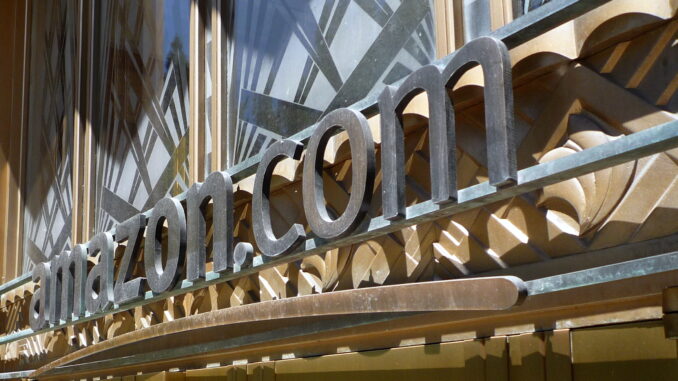
KOLKATA, India—Amazon launched its first e-pharmacy in India, on Aug. 14, entering into direct competition with the country’s largest conglomerate, Reliance Industries Ltd.
Reliance recently acquired a 60 percent stake in Vitalic, the parent firm of Netmeds, a major Indian e-pharmacy, for $83 million.
But the fight isn’t just between the two giants. India’s formidable segment of small retailers is gearing up to fend off the digital advances of Amazon and Reliance.
The Indian pharmaceutical market is expected to reach $55 billion this year, according to estimates from research and consulting firm Frost and Sullivan in a report in January 2019. The sector is expected to grow to $100 billion by 2025, according to another recent report. Currently, it supplies about half of all vaccines around the world and 40 percent of generic drugs in the U.S.
Jeff Bezos-led Amazon, which has invested about $6.5 billion in India in micro to large businesses, has big plans for the country, one of the world’s fastest growing economies despite the recent slowdown. Reliance, led by India’s richest man Mukesh Ambani, is valued at $150 billion.
While the two giants face off, India’s 850,000 medicine resellers, including retail chemists and pharmaceutical distributors, have also swung into action, taking steps to fight the global firms’ entry into the digital pharmacy space.
The All India Organization of Chemists and Druggists, which has been fighting e-pharmacies for several years, in letters to Bezos and Amazon India CEO Amit Agarwal on Aug. 14., termed e-pharmacies “illegal” in India.
“We also have a full dossier ready on this subject,” said the letter sent to Bezos and Agarwal. “Entering this space can bring on legal implications which can bring disrepute to Amazon’s name. It is very disheartening to see that a company of Reliance Industries’ stature has invested in an industry which is still illegal and not recognized under the Drug and Cosmetics Act.”
Amazon did not respond to inquiries by Zenger News. Reliance declined to comment.
There are no laws covering e-pharmacies in India. In 2018, the government proposed draft rules for e-pharmacies. After this, various petitions were filed in different courts in India to ban e-pharmacies. The Drug Controller General of India then instructed all the state regulators to ban online drug sales operating without a license. However, the e-pharmacies claimed they serve customers only through licensed pharmacies and are thus operate under existing laws.
In addition to war between the big names, there is also a struggle between online and offline retailers—both big and small.
The offline pharmacists have also raised the issue of the legality of selling medicines without a hard copy of prescriptions, although this norm was tweaked in recent months because of Covid-19, allowing doorstep delivery of medicines.
“The regulatory gray areas in the online pharmacy market will ease out once the draft rules become the norm,” said Sunil Jain, managing partner of Sprout Capital, a private financial adviser. “In India, four firms — Netmeds, 1mg, Medplus and PharmEasy — account for a major market share in the segment. The entry of Amazon and Reliance will definitely impact the market, but the sector itself is poised to grow.
“There is no tipping point in the sector,” said Jain, adding that the corporate giants are “consolidating the global online pharma business.”
At the heart of this competition in the e-pharmacy market sector is the ever-growing demand for pills in India. This is driven by factors such as increasing lifestyle diseases, population, improved health infrastructure and medication misuse.
“Medication misuse in India is a major public health issue,” said the Journal of Public Health in 2015. “In India, it has been estimated that 50 percent of family spending on healthcare is on unnecessary medications or investigations.”
In the past five to six years, India’s booming startup culture gave rise to e-pharmacies.
“The e-pharmacy market in India is estimated at around $512 million in 2018 and estimated to grow at [a rate of] 63 percent to reach $3.6 billion by 2022,” said the Frost and Sullivan report.
Steep discounts by online pharmacies have been one of the biggest drivers of their growth in India.
“E-pharmacies are offering 25-30 percent discount directly to customers,” said Sankha Roy Choudhury, joint secretary of the Chemists and Druggists Organization. “The basic margin of any retailer varies from 16-20 percent. How will we survive?”
The government’s decision to allow doorstep delivery has made matters more urgent for these pharmacists.
Before Covid-19 hit, 3.5 million Indian households used e-pharmacies, according to a white paper from the Federation of Indian Chambers of Commerce and Industry. During lockdown in May, 9 million households used online medicine services.
“The white paper seems to suggest that the e-pharmacies played a very important role during the lockdown,” the All India Organization of Chemists and Druggists said in response. “We wish to tell you that especially in lockdown 1 (the first phase), which was the strictest with minimum exceptions allowed, no e-commerce company was able to deliver anything.”
(Edited by Siddharthya Roy and Judy Isacoff.)
The post India’s Small Pharmacies Face Off with Amazon, Reliance appeared first on Zenger News.



